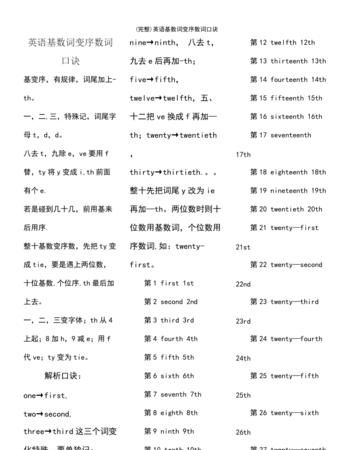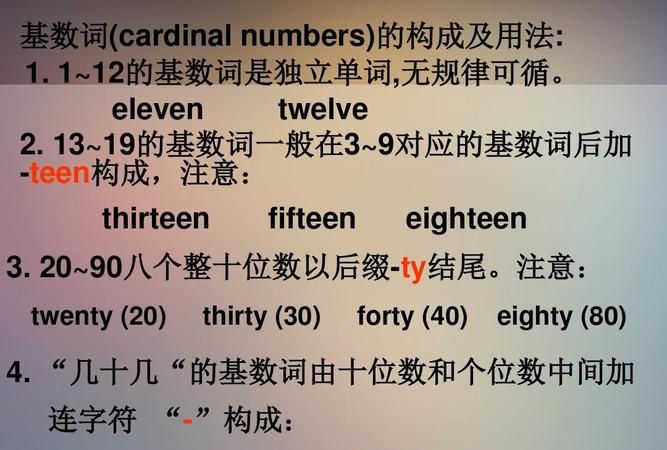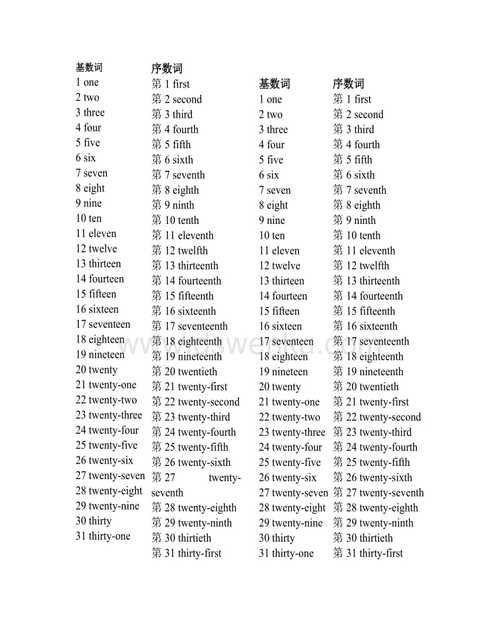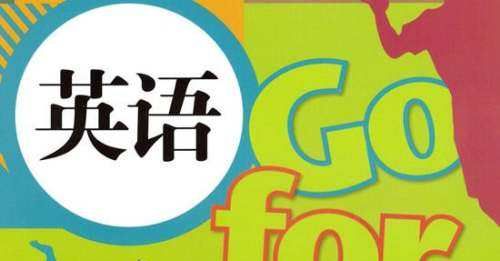本文目录
初三英语各单元知识点归纳
无一事不学,无一时不学,无一处不学,成功之路也。学习外语并不难,学习外语就像交朋友一样,朋友是越交越熟的,天天见面,朋友之间就亲密无间了。下面是我给大家整理的一些初三英语的知识点,希望对大家有所帮助。
九年级上册英语第一单元知识点
I.重点词汇
Test----exam words----vocabulary
Excited----exciting amazing----surprising
sometimes----sometime----some times----some time
for example----such as----like begin with----to begin with
maybe----perhaps----probably affect----influence
problem----question
II.重点词组
1.ask…for… 2.speaking skills
3.ask…about… 4.not…at all
5.get excited about 6.end up
7.make mistakes 8.first of all
9.to begin with 10.later on
11.be afraid of 12.laugh at
13.make sentences 14.take notes
15.write down 16.make sure
17.deal with 18.look up
19.make up 20.worry about
21.be angry with 22.go by
23.each other 24.solve a problem
25.regard…as… 26.complain about
27.change…into… 28.try one’s best
29.with the help of 30.compare…to…
31.think about 32.break off
九年级上学期英语知识点
1.Check in : 在旅馆的登记入住。 Check out: 在旅馆结账离开。
2.By: ①通过…..方式(途径)。例:I learn English by listening to tapes.
②在…..旁边。例:by the window/the door
③乘坐交通工具 例:by bus/car
④在……之前,到……为止。例:by October在10月前
⑤被 例:English is spoken by many people.
3.how与what的区别:
how通常对方式或程度提问,意思有:怎么样 如何,通常用来做状语、表语。
what通常对动作的发出者或接受者提问,意思为 什么,通常做宾语,主语。
①How is your summer holiday? It’s OK.(how表示程度 做表语)
②How did you travel around the world? I travel by air.
③What do you learn at school? I learn English, math and many other subjects.
① What…think of…? How…like…?
② What…do with…? How…deal with…?
③ What…like about…? How…like…?
④ What’s the weather like today? How’s the weather today?
⑤ What to do? How to do it?
e.g. What do you think of this book?=How do you like this book?
I don’t know what I should do with the matter.=I don’t know how I should deal with it.
What do you like about China?=How do you like China?
I don’t know what to do next step?=I don’t know how to do it next step?
㊣ What good / bad weather it is today!(weather为不可数名词,其前不能加 a )
㊣ What a fine / bad day it is today! (day为可数名词,其前要加 a )
初三 英语学习 方法
一、【如何学好初三英语】:词汇
词汇是学好英语的关键,没有足够的词汇就无从谈起听、说、读、写。
词汇量的大小决定一个学生英语水平的高低。因此在初中阶段除要掌握《大纲》要求的800多词汇外,还要扩充500个左右的词汇。在学习词汇的过程中,要掌握词的拼读规则,根据规则记忆单词;同时还要根据构词法知识记忆和扩充单词,通过语境理解和记忆单词也是一个学习单词的好方法。目前词汇在中考试题中汉译英的试题越来越少,取而代之的是词汇在语境中的运用考查比重越来越大。在进入 学习英语 的初级阶段时,掌握语音知识是学好 英语单词 的基础,读准英语音素是拼读音标的前提。因此一定要熟练掌握48个音素,要做到会拼读、拼写。有些同学认为中考试题的笔试部分取消了对语音的考查,于是就其次,要注意训练自己听音、辨音和模仿的能力。课堂上,专心听老师的发音和磁带上的录音,争取当堂学会。对于那些比较拗口的单词、 短语 或 句子 ,课下一定要挤时间反复模仿,直到读准、读熟为止。再次,熟练掌握读音规则,培养自己根据读音规则把字母(或字母组合)与读音建立起联系的能力。因为掌握拼读规则对单词的记忆很有好处。
二、【如何学好初三英语】:语法
语法是学好英语的基础,它是掌握英语的工具。在你掌握了一定的词汇量后,了解一些语法知识是非常必要的。选择填空是考查语法的一个重要题型。它可以通过选择的方式考查名词、动词、代词、形容词、副词、连词、介词和数词等等。覆盖面较广。初中阶段所学的语法知识就是那么屈指可数的几个,反复练习过多遍,为什么到头来还是出错呢?这种一错再错的现象在学生中是普遍存在的,即某个题目在以前曾做错过,以后再次见到这个题,还是做不对甚至犯同样的错误。我觉得问题的关键在于没有彻底弄懂错误的原因或没有引起足够的重视。你应该把做错的每一道题,都要进行认真、仔细的分析和思考:错在哪里?是对该知识点不了解还是粗心大意所致?如何改正?怎样才能避免类似错误的发生?是否还有 其它 的解法?经过这一番 反思 之后,再把它们记录到"错题库"中去。以后再碰到类似题目就基本上可以杜绝错误的发生。尤其是那些易受思维定势影响的题目更应当这样去处理,否则就很容易重蹈覆辙。
时态学习是中国学生最为头疼是一项语法项目。因为中国人在语言的表达中只有时间的变化,而没有时态的概念,但英语中语言所表述的事情处在不同的时间,要用不同的时态,而且时态的关键表述在句子的谓语动词上。有时背起规则来很容易,但在句子的使用中却常常出现错误。要准确地掌握初中阶段的五个基本时态,重要的还是要在句子中多运用。
初三英语单元知识点归纳相关 文章 :
★ 初三上册英语单元知识点
★ 初三英语第一单元知识点梳理与学习方法
★ 九年级英语语法知识点整理归纳
★ 初三全程英语知识点总结
★ 初三英语知识点大总结
★ 初三上册英语知识点归纳
★ 初三英语重要知识点
★ 人教版九年级英语词组知识点归纳
★ 初三英语九个语法知识点

人教版七年级上册英语第六单元教案
随着国际贸易的发展,英语的应用也越来越普遍,下面是我整理的人教版七年级英语上册第八单元课件,希望对你有帮助。
人教版七年级英语上册第八单元课件一
【学习目标】
1掌握本节课的3个单词和3个新句式。
2.初步学习基数词1—31的序数词及序数词的简写形式。
3.巩固句型: when is your/ his/ her/ bob’s birthday ?来询问他人的生日。
学会句型:how old is/are---? 询问别人年龄。
4. 通过学习,增强与人沟通的意识。了解家人的生日和年龄。
【学习重点、难点】:
1. 基数词1—31的序数词及序数词的简写形式
2. 句型: when is your/ his/ her/ bob’s birthday ?询问他人生日
how old is/are---? 询问别人年龄。happy birthday! see you !
【导学指导】:
一: 熟练掌握词汇:happy, happy birthday, old, how old---, party, see you !
二: 熟练掌握句型: when is your/ his/ her/ bob’s / your father’s birthday ?
how old is/are---? happy birthday! see you !
【知识点拨】
1. 序数词:表示顺序的数词称为序数词
2.序数词的简写形式:在相应的阿拉伯数字后加上原序数词的末尾两个字母
one-first-1st.twelve-twelfth-12th thirteen-thirteenth-13th
二. how old is/are---? 询问别人年龄,答句:主语(人称代词)+ am/is/are +岁数 +
(years old ), 其同义句是:what’s + your/his/her/your father’s + age ?
如:how old is he ? – he is 13 (years old) . 同义句what’s his age ?
【自主学习】:
学习任务一: 熟练掌握本课的6个单词。
1.个人自读,记忆本课单词。
2.小组互相检查单词读写情况。
学习任务二: 写出数字1----31的英文单词。
【合作探究】
(1)教师课前安排组长检查学生自主学习完成情况。
(2)教师检测学生对本节课的3个单词和3个短语的记忆情况。
(让学生利用课前3分钟加强记忆,然后选各组同学进行拼读,全班学生进行点评)
(3) 情景导课:教师引导学生复习数字1——30
(4)听录音,跟读2a表格中基数词,
(5)听录音, 完成2b、2c 内容. 师生核对答案。
(6)让学生利用2c中信息,两两分组进行练习2d对话,然后选派几组同学进行表演。
(7)学生阅读2e中对话,教师解读点拨。
探究:仔细阅读本课对话内容,学生分组讨论时间介词in, on, at的用法。
1.表示在什么日期用_______ 如:_________________ 2在哪个月份用_____ 如:________
3.在几点钟用_______ 如:_____________________4.在星期几用________如:________
5.在一天某个时间段用______如:_________________
【展示交流】
1. 让学生分男女角色进行练习2e中的对话。
2.让学生两两分组进行练习2e中的对话,然后各小组选派同学进行表演。
【达标训练】
(一)用介词in ,on ,at填空.
1. my mother’s birthday is_______ july 21st
2. my birthday is _____ sunday(周日) .
3. when is your birthday ? it’s ______ october .
4. we have breakfast _______ 7: 10 .
5. i always have sports _______ the morning .
(二)选择
( ) 1.--________ your birthday ? --it’s on may 7th.
a. when is b. when c. when are d. what is
( ) 2.his mother’s birthday is_______ july 1st.
a. in b.on c. at d. to
( ) 3. -today is my birthday -________________ .
a.thank you b.ok c. happy birthday to you d. great
( ) 4. -happy birthday to you ! - ___________ .
a. happy birthday b.me, too c. you’re welcome d. .thank you ( )5. _______ your mother ? ----she’s 36 years old .
a. what is b. how old c. how old is d. who is
( )6. january is the________ month in a year .
a. one b. two c.first d. second
【拓展训练】
(三)翻译下列短语
1我父亲的生日___________________2.在六月份___________________ 3八月一日______ 4 在六点十分__________________5一个生日聚会______________ 6 再见____________
(四)、句型转换(10分)
(1)my mother’s birthday is on july 21st.(对划线部分提问)
_________ ________ _________ mother’s birthday ?
(2) how old is the boy ? (改为同义句)
_________ the boy ‘s ________ ?
(3) my grandfather is 60. (对划线部分提问)
________ _________ ________ your grandfather ?
【总结反思】
通过本节课的学习我最大的收获_________________________________________________
感到自己有待加强的是____________________________________________________________
人教版七年级英语上册第八单元课件二
S ection A
一、学习目标
(一)知识目标
A:四会下列词汇:would, I’d, noodle, beef, mutton, cabbage, potato, special, juice, drink, bowl, he’d, he would, size
B:熟练掌握句型:-What kind of noodles would youhe she like ?
-I’d / He’d/She’d like …… noodles.
What size bowl of noodles would you /he/she like?
(二)能力目标:学会描述食品,会以食品为“话题”的的角色表演,充分地展示自我。
(三)情感目标:让学生在交流中学会热情好客,礼貌待客,培养乐于助人的良好品质。
二、教学重难点
Difficult points:
1. Make the countable and uncountable nouns clear, and use them.
2. Use the new language to order your food.
三、学习过程
(一)预习导学及自测
用所给单词的适当形式填空。
1. There (be) some (beef )and (egg) in the noodles.
2. There (be) some onions and (mutton) in the bowl.
3. I would like you (come) to my house.
4. Look, they (buy) fruit and vegetables in the market.
5. Would you like some juice (drink)?
6. She (have) an egg, a small bowl of (chicken) noodles and two (apple)every day.
7. I like (listen) to the pop music and (watch) TV.
8. They would like (see) the (animal) in the zoo.
9. Let them (help) us with English.
10. I with Jack (do) homework in the classroom now.
(二)情境导入
1.Warm-up
Talk about the food.
“Do you like apples?” “Yes, I do.”
2 “Do you like tomatoes?” “No, I don’t.”
I like… I don’t like…
(三)自主探究
Learn the new vocabulary words
1. Prepare some pictures of“ noodles, beef, cabbage, potatoes, mutton”. Show them to the students. Ask and answer. Learn the new words “noodles, beef, mutton, cabbage, potatoes, would like, bowl, size, special”.
2. Practice reading the new words: (A) Get a student to read the new words.
(B) Ask the class to repeat the new words after the teacher.
(C) Then read them together/in parts/one by one.
3. Remember the new words.
4. Explain some opposite words:
Countable nouns: cabbage; potato; special; tomato; apple; egg
Uncountable nouns: beef; mutton; broccoli
(四)合作探究
1. Show a picture of noodles. Ask “What kind of noodles would you like? Would you like beef noodles?” Students may answer “I’d like…; Yes, I’d like. / NO, I wouldn’t like.”
2. Ask some students to answer the questions. The teacher writes the answers on the blackboard.
“--What kind of noodles would you like? “--I’d like mutton noodles.”
Practice asking and answering the conversation.
3. Make a new conversation with your classmates.
4. 1a. Look and match
(1) The teacher reads the instructions to the students. Look at the pictures first. Then get the students to complete it by themselves.
(2) Check up the answers.
5. 1b. Listening practice
(1). The teacher reads the instructions to the students.
(2). Get the students to look at three specials in the picture in 1a.
(3). Play the recording for the first time, students only listen.
(4). Play the recording again, try to check by themselves. And check up theanswers.
Play the recording, let the students repeat after the recording. Then practice reading the conversation.
(五)拓展创新
1. 1c. Pair work
(1). The teacher explains the instructions to the students.
(2). The students practice reading the conversation below in 1c.
(3). Make their own conversations. Ask “What kind of noodles would you
like? ”Then work it in class.
2. 2a Listening practice
(1).The teacher explains the instructions to the students.
(2). Get students to read the words and look at the pictures in 2a.
(3). Play the recording for the first time, students only listen.
(4). Play the recording again, students listen and try to check the words you
3. 2b Listening practice
(1). Students read the sentences in 2b.
(2). Play the recording. Listen and try to fill in the blanks.
(3). Check up the answers.
(4). Play the recording again. Get the students to repeat after the recording.
4. 2cPair work
(1). The teacher explains the instructions to the students. Then students look at the pictures in 2a. Read the example to the students.
(2). Try to make the conversation by on their own.
(3). Check up the conversations in class.
A: What kind of noodles would you like?
B: I’d like beef and tomato noodles.
(六)达标检测
一、根据句意,补全已给出首字母的单词
1.What s_____ bowl of noodles would you like?
2.Our playground is very l_____. We often play sports on it.
3. I’m a little h .Would you please give me something to eat?
4.There are many k of noodles in this shop.
二、选择
1. --Would you like some_____________? --Just a little.
A. apple juices B. carrots C. orange D. pears
2.--__________________________? --Yes, I’d like some green tea.
A. What would you like? B. What can I do for you?
C. Can I help you? D.A.B.C.
3.Some ___________noodles are nice.
A. tomato and eggs B. tomatoes and eggs
C. tomato and egg D. tomatoes and eggs
4.--Would you like to go swimming with us? --______________________.
A. No, I wouldn’t B. Yes, I would C. Yes, I’d love D. Yes , I’d love to
5.--What _____ do you have ? -- We have small, medium, large bowls.
A. kind B. size C. color D. other
三、完成句子
1.我想要一大碗面。
I’d____________ a __________ _______ ___________noodles.
2.你们想要两个中碗面吗?
Would you_________ two________ ________ ______noodles?
3.他想要多大碗面?
What______ bowl __________noodles would you ___________?
4.Linda想要西红柿牛肉面。
Linda ______________like __________and____________noodles.
四、完成对话
Woman: Hello, Hamburger Express.
Boy: Oh, hello. I want to order a hamburger, please.
Woman: Sure.(1) ?
A. What would you like?
B. What's your phone number?
C. What's your address?
D.What size hamburger would youlike?
Boy: I’d like a medium hamburger.
Woman:(2) on it?
Boy: Tomatoes and mushrooms.
Woman: Okay…Anything else?
Boy: No, thanks.
Woman:(3) ,please?
Boy: 65 Zhongshan Street.
Woman: And (4) ?
Boy: It's 272-8656.
Woman: That'll be 2 dollars. And we'll deliver your hamburger in 20 minutes.
典型例题解析
1.– I don’t like mutton beef.
– I don’t like mutton , I like beef a lot.
A. and, but B. and, and C. or, but D. or, and
解析:本题考查and , or, but的用法及其区别。 and用于肯定句,连接两个并列的成分,表示并列。翻译为“和”。 And用于否定句必须变成or来表示并列。Or也可以表示选择,翻译为“或者”。 But表示转折,but 的前后句子部分意思上相反。根据题意,本题选C
2.—Would you like some tea? — ________.
A. Yes, please. B. No, please. C. No, I don’t D. Yes, I would
解析:本题考查情景交际。别人询问你是否需要什么东西时,如果需要就回答“Yes, please.”如果不需要就回答,”No,thanks.”就算不需要也应该感谢别人。CD两项不符合题意。本题选A。
五、中考链接
1、(2009河南)I like__ a lot ,and my mother usually cooks it in different ways.
A. fish B. butter C. potatoes D. noodles
解析;本题考查名词的用法。可数名词不能单独使用,名词前边必须有数词、冠词或形容词性物主代词来修饰,或者用复数,不可数名词可以单独使用。排除D,noodle为不可数名词。“我妈妈经常用各种方式烹饪它”,排除B,butter为“黄油” 并且句子中的 “it”只能代指可数名词单数或者不可数名词所以排除C。根据分析,本题选A
2、(2009 石家庄)Would you like ______ tea?
A. a B. any C. some D. an
解析:tea 是不可数名词,不能用不定冠词a或an;再,虽然是疑问句,但是这里是表达说话人的建议,希望听到肯定的回答,所以应该选C。
六、课后反思
通过过这节课,我掌握了________________________________________________,
还没掌握_______________________________________________________________

七年级上册英语第八单元所有单词
七上Unit8主要都是月份和序数词的单词,复数名词主要有ages trips, speeches parities

初中英语基础语法知识
初中英语基础语法5数词
数词

(一)基数词 在英语中表示数目的词称为基数词,初中英语基础语法5-数词。
1.基数词的构成
(1)1-20
one,two,three,four,five,six,seven,eight,nine,ten,eleven,twelve,thirteen,fourteen,fifteen,
sixteen,seventeen,eighteen,nineteen,twenty
(2)21-99 先说“几十”,再说“几”,中间加连字符。
23→twenty-three,34→thirty-four,45→forty—five,56→fifty-six,67→sixty-seven,78→seventy-eight,89→eighty-nine,91→ninety-one
(3)101—999先说“几百”,再加and,再加末两位数或末位数;
586→five hundred and eighty-six,803→eight hundred and three
(4)l,000以上,先从右往左数,每三位数加一个“,”,第一个“,”前为thousand.第二个“,”前为
million,第三个“,”前为billion(美式)或thousand ,million(英式),然后一节一节地表示。
1,001→one thousand and one
9,785→nine thousand, seven hundred and eighty-five
18,423→eighteen thousand,four hundred and twenty-three
6,260,309→six million two hundred and sixty thousand three hundred and nine
750,000,000,000→seven hundred and fifty, billion(美式) seven hundred and fifty thousand million(英式)
2.基数词的'用法
(1)作主语
eg.Four Of them come from Paris.
(2)作宾语
eg.一 How many books would you like?
一I would like two.
(3)作表语
eg.Seven minus two is five.
(4)作定语
eg.There are three people in my family·
(5)作同位语
eg. You two will go swimming with us.
(6)表具体数字时,hundred,thousand,million用单数。
eg. There are six hundred students in our grade.
(7)表不确定的数字时,数词用复数。若带名词,再加of hundreds of(数百,成百上千的),thousands of(数干,成千上万的),millions of(数百万)
eg,They arrived in two sand threes.他们三三两两地来了。
(8)表示“…十”的数词的复数可以表示人的岁数或年代。
eg. He is in his early thirties.他有三十来岁(31—34岁):
This took place in the 1930s.这事发生在二十世纪三十年代;
(9)表示时刻
eg.I watch CCTV News at seven o’clock every evening.
(二)序数词 在英语中表示顺序、次序的词称为序数词,英语语法《初中英语基础语法5-数词》。
1.序数词的构成
(1)一般在基数词后加th
eg.four→fourth,thirteen→thirteenth
(2)不规则变化
one→first,two→second,three→third,five→fifth,eight→eighth,nine→ninth,twelve——~twelfih
(3)以y结尾的十位整数,变y为ie再加th
twenty→twentieth, forty→fortieth, ninety→ninetieth
(4)从二十一后的“几十几”直至“几百几十几”或“几千几百几十几”只将个位的基数词变为序数词。
twenty-first,two hundred and forty-fifth
2.序数词的用法
(1)序数词作定语时,一般要与定冠词或物主代词连用。
eg.Tom is their second son.
He is the first one to come here.
(2)序数词有时可与不定冠词连用,表示数量上“又—”,“再一”
eg: He tried a second time.他又试了—次。
Shall l ask him a third time?还要我再问他—次吗?我已问了他两次)
(3)序数词的缩写形式为:阿拉伯数字加上这个词的末尾两个字母。
1st 2nd,3rd,4th,20th,21st,22nd,23rd
(4表示年、月、日时,年用基数词,日用序数词。
2005年8月15日:(英)15,8,2005=15th,August,2005;(美)8,15,2005=August 15th,2005
(三)基数词和序数词都可以用来给数字编号。
No.1(1号),No.3bus(3路公共汽车),Room 103,(103号旁间)
The first lesson=Lesson Two(第二课)
(四)分数词的表达
分子用基数词,分母用序数词,分子大于1时,分母加s
eg.1/3-one third;2/5-two fifths
(五)数学运算的表达
eg.3+5=8 Three plus/and five is eight.
9-2=7 Nine minus two is seven.
6x5=30 Five times six is thirty /six unutilized five is thirty.
8÷2=4 Eight divided by two is four.
;以上就是关于数词是初中英语第几单元 ,初三英语各单元知识点归纳的全部内容,以及数词是初中英语第几单元 的相关内容,希望能够帮到您。

